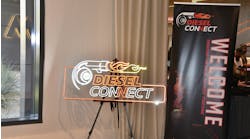Professional competence is not enough to be a good leader
Why is it some organizations are more innovative, more profitable, command greater loyalty and, most importantly, are able to repeat their success again and again, even when all companies have the same access to information and talent or some are better funded?
It is because the most successful organizations have leaders that create an environment in which people excel. Leaders create conditions wherein people are valued, feel safe and work toward the organization’s goals and objectives.
That was the message from Simon Sinek in the keynote address to the recent NAFA Fleet Management Association’s 2014 Institute & Expo. He is a trained ethnographer (ethnography is the study and systematic recording of human cultures) and a bestselling author who teaches leaders and organizations how to inspire people.
Opposite Methods
All great companies think, act and communicate in the same way and “it is the opposite to everyone else,” Sinek maintained. There is an intense sense of trust and cooperation, which is “a natural response when we are surrounded by people who make us feel safe.
“In the workplace, if we trust the people with whom we work, we don’t have to watch our back or double-check someone’s work. We know what they are up too and they believe they are doing the right thing for the right reasons, which is for the good of everyone.”
Create Conditions that Nurture
In business, there are dangers which cannot be controlled, such as the uncertainty of the stock market, the ups and downs of the economy and the competition, explained Sinek. “These are constant dangers and they are not going away.”
The only variables are the conditions inside an organization and these can be controlled by the decisions of the leaders, he said. This is where the leadership comes into play because “leaders are the ones that create the conditions where people will be at their natural best.
“When there is trust and cooperation, the organization faces the dangers and seizes the opportunities together.”
Where is the Focus?
In the military, medals are given to those who are willing to sacrifice themselves so that others may gain, Sinek observed. In business, bonuses are given to those who are willing to sacrifice others so that they may gain.
“Business has it backwards,” and it makes people feel that they are an expendable resource.
Leaders are focused on their people, he said. They understand that an organization’s success or failure is based on leadership excellence and not managerial acumen.
Furthermore, they understand that being a leader requires a loss of self-interest.
“Leadership is not a rank or a position,” Sinek said. “It is a choice. It is a decision to take on the responsibility to look after your people and a willingness to sacrifice when it matters to help those around you.
“Leadership takes sacrifice. Your life doesn’t become easier when you become a leader. It gets harder because you give more of your time and energy to others.
“This is what it means to be a leader.”
They Eat Last
Sinek said he once asked a U.S. Marine Corps general what makes the Marines so good. The general responded: “Officers eat last.”
Anywhere in the world at chow time, explained Sinek, Marines line up in rank, most junior first and most senior last, even though the senior soldiers are entitled to eat first because of their rank. This is not in any rule book or because Marines have to do it. It is a part of their culture – that leaders are responsible for the people in their care.
“When people feel their leaders have them in mind and will sacrifice for them, they will give tirelessly and will sacrifice for their leaders,” Sinek said. “People work to make their leaders proud,” and cited sports teams by way of example.
“Great sports teams don’t want to win a trophy. They want to win for the coach.”
Relationship Building
The most successful organizations have strong cultures and shared values, understand the importance of teamwork, create trust among their members, maintain focus and, most importantly, understand the importance of people and relationships to the organization’s mission success, said Sinek in drawing his remarks to a close.
“The more we look after each other, the safer we feel, the more we feel like we belong, the more we will work together to confront the dangers outside.
“You can only lead people, not an organization.”




